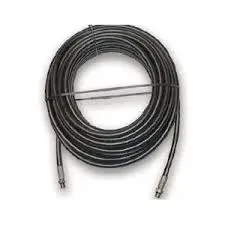Understanding the Importance of Automotive Brake Lines for Vehicle Safety and Performance
Understanding Automotive Brake Lines Safety and Performance
When it comes to vehicle safety, few components are as critical as the brake system. Among the myriad parts that constitute this system, brake lines play a pivotal role. These lines not only facilitate the function of braking but also ensure that the entire braking system operates efficiently and safely. In this article, we will explore the types, construction, maintenance, and overall importance of automotive brake lines.
What Are Brake Lines?
Brake lines are high-pressure tubes that transport brake fluid from the master cylinder to the brake calipers or wheel cylinders. This hydraulic fluid is essential for activating the brakes. When a driver presses the brake pedal, pressure is built up in the master cylinder, pushing the brake fluid through the lines to the brakes at the wheels. This hydraulic action is what causes the vehicle to slow down or come to a complete stop.
Types of Brake Lines
Automotive brake lines are typically made from two main materials rubber and steel
. Each material has its own advantages and disadvantages.1. Rubber Brake Lines These are commonly found in many vehicles due to their flexibility and relative affordability. Rubber lines can absorb vibrations and are less likely to cause noise. However, they are subject to wear and tear over time, which can lead to leaks. Heat and exposure to harsh conditions can degrade rubber, making regular inspections essential.
2. Steel Brake Lines For more performance-oriented vehicles, steel brake lines are often preferred. They provide a higher level of durability and resistance to damage. Steel lines are less prone to swelling than rubber lines, which can lead to more consistent brake performance. However, they are more susceptible to corrosion if not properly maintained. Many enthusiasts opt for stainless steel brake lines, which offer increased resistance to corrosion while still providing the benefits of rigidity.
Maintenance of Brake Lines
Maintaining brake lines is crucial for ensuring a safe driving experience. Here are some key aspects of brake line maintenance
automotive brake lines

- Inspect Regularly Drivers should visually inspect brake lines for any signs of wear, cracking, or leaks. A professional mechanic should be consulted if any abnormalities are detected.
- Check Fluid Levels Regularly checking the brake fluid level is essential. A drop in fluid can indicate a leak in the system, which could compromise braking effectiveness.
- Flush and Replace Fluid Over time, brake fluid can absorb moisture, which can lead to corrosion and reduced braking power. It is recommended to flush the brake system and replace the fluid at regular intervals, typically every two years.
- Protect Against Corrosion For steel brake lines, applying a protective coating can help prevent rust and corrosion, especially in regions that use road salt during winter months.
Why Brake Lines Matter
The importance of brake lines cannot be overstated. They are an integral part of what makes modern vehicles safe. A failure in the brake line can lead to catastrophic failures, resulting in accidents that could harm not only the driver but also others on the road.
Moreover, performance-oriented drivers recognize that the quality of brake lines can directly affect their vehicle’s braking response. Upgrading to stainless steel brake lines, for example, can provide better pedal feel and responsiveness, allowing for greater control during high-performance driving.
Conclusion
Automotive brake lines are a foundational element of vehicle safety and performance. Understanding their types, importance, and maintenance can help drivers ensure that their vehicles operate reliably and safely. Regular inspections and maintenance of brake lines can prevent issues that lead to brake failure, thereby protecting both the driver and passengers. As part of a vehicle's overall health check, paying attention to brake lines is not just advisable; it is essential for any conscientious vehicle owner.
-
Ultimate Spiral Protection for Hoses & CablesNewsJun.26,2025
-
The Ultimate Quick-Connect Solutions for Every NeedNewsJun.26,2025
-
SAE J1401 Brake Hose: Reliable Choice for Safe BrakingNewsJun.26,2025
-
Reliable J2064 A/C Hoses for Real-World Cooling NeedsNewsJun.26,2025
-
Heavy-Duty Sewer Jetting Hoses Built to LastNewsJun.26,2025
-
Fix Power Steering Tube Leaks Fast – Durable & Affordable SolutionNewsJun.26,2025

